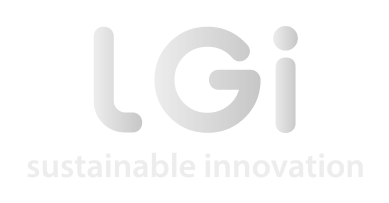In partnership with Acclimatise, LGI has led a multi-national consortium of research partners undertaking deep-dive studies of various economic sectors’ demands for climate services. Whilst previous studies have largely sought to develop prototypes or explored the potential use of climate (data) services by means of individual use cases, the Horizon 2020 research project MARCO (MArket Research for a Climate services Observatory) takes a 360° view of the market as a whole. Rather than honing in on the technical requirements of specific users, the project widens its focus to understand the vulnerabilities and needs of different market segments and the conditions that could enable the market to flourish into the future.
Sectors analysed in the MARCO project span the Copenhagen real estate to Austrian alpine winter tourism sectors. The project also includes the world’s first analysis of the implications of climate change for legal services and that sector’s potential demand for climate services.
The outcomes of the MARCO project, available soon, will provide unprecedented detail as to the nature and scope of the climate services market, and provide foresight on how demand could evolve in the coming years and decades. Recommendations will not only inform proposals for a Climate Services Observatory but provide recommendations – for the supply and demand sides – as to how individual sectors and regions can support uptake of climate services and build climate resilience.
With the EU High Level Expert Group on Sustainable Finance, the European Pensions Directive IORP II, and the Finance Stability Board’s Taskforce on Climate-related Financial Disclosures rapidly bringing about change in the regulatory environment, management of climate-related risks and appreciation of related opportunities has never been so high on the agenda of directors and boards.
MARCO results, however, show that users seldom, if ever, request ‘climate services’. There is low awareness of what climate services are across all sectors. Such generalised lack of understanding undermines early-stage analyses of the market and, more importantly, identification of proposals to promote climate services take-up. Use of unfamiliar terminology (e.g. climate services) can itself be a barrier to users’ desire to learn about services even when the service may itself be desired.
The climate services supplier market has been historically thought of as comprising a small number of mainly public sector meteorological organisations. This is somewhat true in so far as MARCO research finds more public than private climate service suppliers in 8 of 9 studied sectors. Water and sanitation, energy, agriculture, urban planning, education, and forestry sectors are all well served by (predominantly public) climate services suppliers. However, this characterisation is partly an effect of ‘common-sense’ understandings of climate services that associates them with the work of such organisations. This both limits (potential) users’ expectations of what climate services could be and embeds the notion that climate services are, in their entirety, public goods. Such engrained assumptions act as a brake on sector growth that contributes to a false appraisal of the nature and scope of the climate services sector, leaving tangible needs unaddressed, suppliers in the dark about what services need to be improved and where money needs to be invested, and policy makers unclear about how the sector could best be nurtured.
It is clear that climate services suppliers must become more geared toward the specific needs of individual sectors and their activities. A demand-centred view of climate services focuses attention on user needs and applications of climate-related knowledge that more, often than not, fall beyond the scope of traditional, non-commercial meteorological services providers. The possible applications are manifold – as plural as they are necessary to ensure build the resilience of individuals, societies, and economies. However, these applications are poorly understood and even poorly served by policy makers and climate services suppliers. Analysing the broader spectrum of actual and potential climate services activities and climate service suppliers redefines and enriches definitions of the climate services market, and highlights end users’ own perceptions about what climate services are and could be.
Following the insights of the MARCO research, to be successful, climate services must:
- bridge the ‘translation gap’ between climate science and applied use to be pertinent to specific users in different sectors and regions;
- demonstrate value: what are the cost-benefits of climate services; what opportunities does using certain climate services open-up? (e.g. enhancing reputational value);
- build visibility and credibility through establishing an easy-to-use ‘shop window’ for non-experts and quality assurance regime
Full reports and project results will be available for download soon.
For more information, please visited the MARCO dedicated website. You can also find MARCO on Twitter: @marco_h2020
MARCO Coordinator: Thanh-Tam Le, Climate-KIC thanh-tam.le@climate-kic.org
Partners: Climate-KIC (France), Acclimatise Ltd. (UK), Technical University of Denmark, Finnish Meteorological Institute, Helmholtz-Zentrum Geestacht HZG (Germany), INRA(France), Joanneum Research (Austria), kMatrix (UK), LGI Consulting (France), Smith Innovation (Denmark), UnternehmerTUM GmbH (Germany).
Duration: November 2016-November 2018. EU contribution: EUR 1,520,303.75
This article was written by Richard Bater and first published on the Acclimatise website.




FOLLOW US